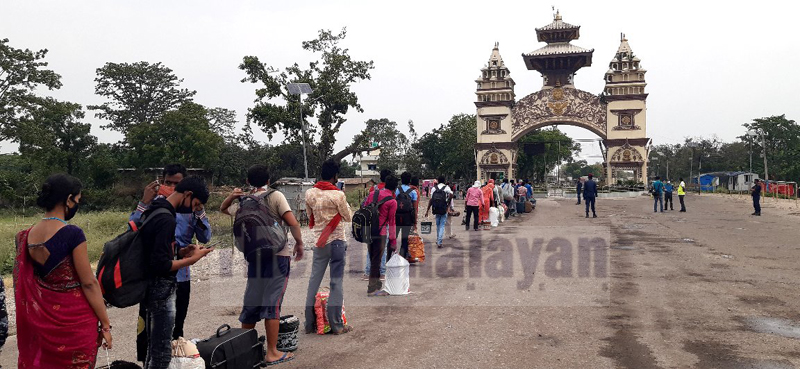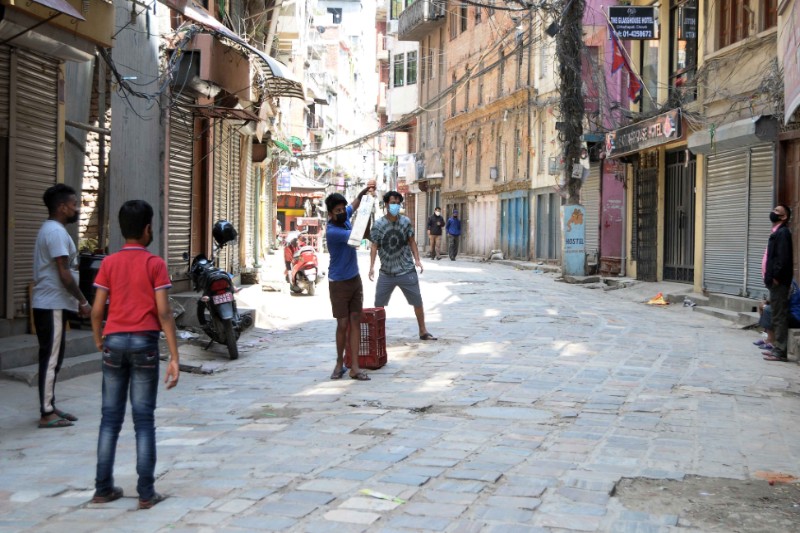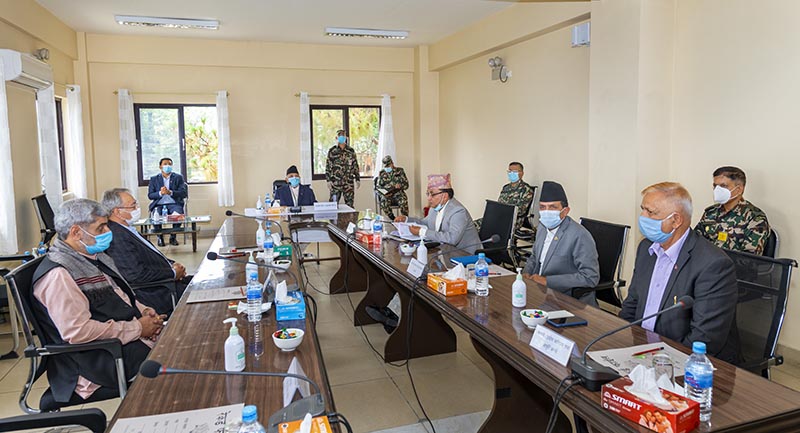High-level panel to decide on easing lockdown by tomorrow
KATHMANDU, JUNE 2
The High-Level Coordination Committee for the Prevention and Control of COVID-19 formed under Deputy Prime Minister and the Minister of Defence Ishwar Pokharel will decide in a day or two whether or not to ease the lockdown.
Member Secretary of the committee Narayan Prasad Bidari said Pokharel today held discussion with industrialists, construction entrepreneurs, bankers and sectoral experts on what the modality of the lockdown should be in the coming days and weeks. According to Bidari, the high-level committee will consult doctors before taking a call on the lockdown modality to stem the threat of COVID-19. “Most of the people who were consulted today told Pokharel that the lockdown should be gradually eased. I think that will be our agenda in the next meeting,” said Bidari.
Roshan Pokharel, who is the chief specialist at the Ministry of Health and Population told THT that the ministry had recommended strategies for partial reopening on the basis of green, yellow and red zones.


He said rules of social distancing should be followed until the country overcame the threat of COVID-19 pandemic and use of facial mask should be made mandatory at public places.
Pokharel said unexpected number of people were likely to return from India in the coming weeks and months and that could pose a challenge in combating the coronavirus.
“We will have to add and upgrade centres to quarantine those coming from foreign countries,” he said, adding that people staying in quarantine centres could be allowed to go home after 14 days. “The World Health Organisation states that there is no risk of infection from a COVID-19 patient after 11 days. But we are exercising extra caution and will allow quarantined people to go home only after 14 days,” Pokharel added.
Consultant Infectious Disease Physician at HAMS Hospital Anup Subedee said the government lacked comprehensive plan to tackle the threat of COVID-19 pandemic. “We are facing Hobson’s choice: If we lift the lockdown now when cases of COVID-19 are rising sharply, large number of people will be at risk of infection, but if the lockdown continues, many people could die due to hunger,” he said.
He added that the government did not utilise the lockdown period to make adequate preparations. “We continue to see people succumbing to COVID-19 in quarantine centres. People in quarantine centres are not getting proper medical care. Doctors and health professionals are not available at quarantine centres,” he added.
Subedee said the government needed to ramp up testing.
“Had the government conducted around 2,000 tests a day for COVID-19 two months ago, it would have made a lot of diference,” he said. He added if the government wanted to test two per cent of the population, it should do so quickly.
“Testing two per cent of the population in six months won’t help much in our fight against the COVID-19 pandemic,” he said. “Testing two per cent population means testing around 600,000 people. But even six lakh tests won’t be enough since the number of migrant workers returning from India is likely to be more than six lakh,” said Subedee.
He added that laboratories across the country didn’t have so many testing kits.
A version of this article appears in e-paper on June 3, 2020, of The Himalayan Times.






